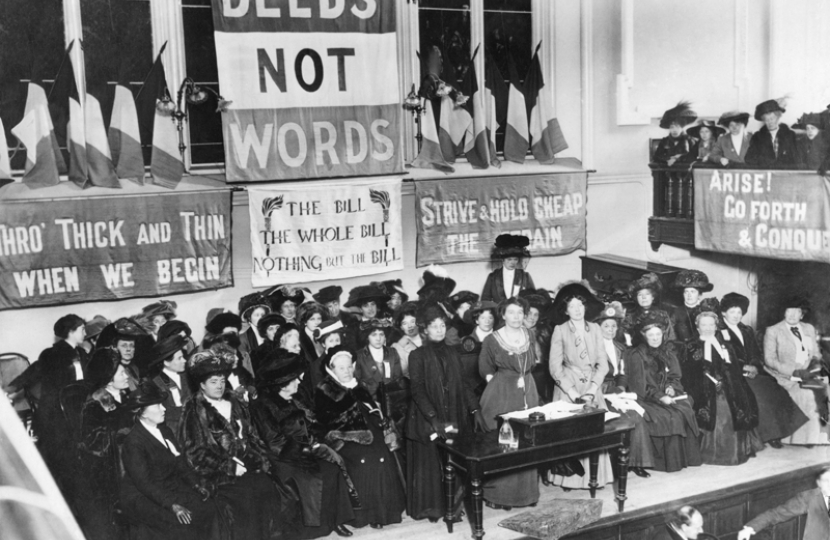
A new, widely acclaimed film, Suffragette, has stirred interest in the militant campaign to advance the cause of votes for women before the First World War. The film reinforces the persistent myth that it was the suffragettes’ law-breaking which eventually led Parliament to enfranchise women. An article in The Times on October 21 pointed out there was already a majority in the Commons in favour of votes for women before the suffragettes’ campaign began. In a subsequent letter published in the paper on October 24, Alistair Lexden drew attention to the efforts made by the Liberal Prime Minister, Herbert Asquith, to enable that Commons majority to prevail.
Sir, Despite his personal opposition to female suffrage, Asquith made a determined attempt to give effect to the wishes of “the majority in the House of Commons in favour of votes for women” before the First World War” (“Breaking the law didn’t win votes for women”, Oct.21). When he introduced his 1912 Reform Bill providing for full male adult suffrage, he made clear that the government would accept a Commons amendment to include women on the same terms. In January 1913, however, to Asquith’s great surprise and contrary to all precedent, the Speaker ruled the amendment out of order. This led to the collapse of entire Bill. Winston Churchill, then Home Secretary, pressed the case for a referendum but sharp divisions in the cabinet made agreement impossible.
Lord Lexden
House of Lords
